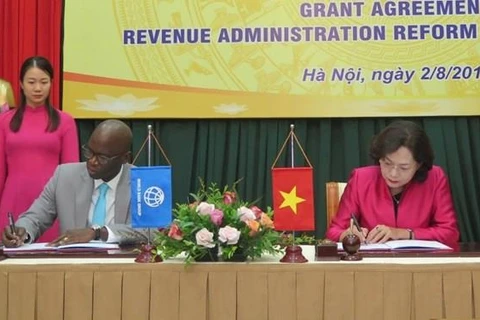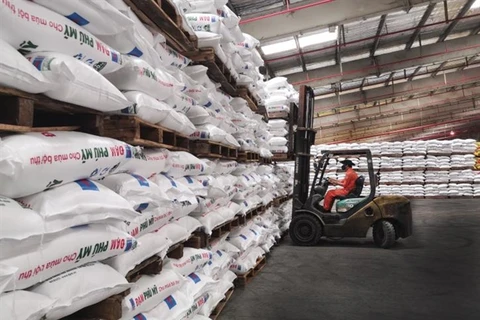 In 2019, Vietnam leaped 14 places in the Open Budget Index (OBI) rankings to stand 77 out of the 117 countries, said the report released by the Vietnam Institute for Economic and Policy Research. (Illustrative image. Source: VNA)
In 2019, Vietnam leaped 14 places in the Open Budget Index (OBI) rankings to stand 77 out of the 117 countries, said the report released by the Vietnam Institute for Economic and Policy Research. (Illustrative image. Source: VNA)
Hanoi (VNA) - Vietnam is sparing no efforts to implement tax reform measures along with the application of information technology in tax administration to disclose budget information, according to the Vietnam Annual Economic Report 2020 launched at a conference in Hanoi on June 17.
In 2019, Vietnam leaped 14 places in the Open Budget Index (OBI) rankings to stand 77 out of the 117 countries, said the report released by the Vietnam Institute for Economic and Policy Research (VEPR).
It evaluated that Vietnam is making strong changes in economic management mindset. The government has committed to opening markets and developing the private sector, including tax policies.
However, the diversion of trade, investment flows and global supply chains after the COVID-19 pandemic might pose challenges to Vietnam's tax system, the report said, adding that Southeast Asian countries, including Vietnam, are likely to use tax incentives as a tool to encourage domestic investment as well as attract foreign direct investment (FDI) so as to create competition rather than cooperation with countries to promote economic growth.
Director of VEPR Nguyen Anh Thu said attracting FDI is necessary to create a boost for economic development. However, excessive incentives or drawing FDI at any cost could create a burden on the economy as well as certain inequalities in the business environment for domestic enterprises.
VEPR's statistics showed that the annual tax revenue from the FDI sector is estimated at 8-9 trillion VND (344.5 million USD – 387.8 million USD), equivalent to 4 to 4.5 percent of the corporate income tax revenue, while that from the non-state sector could reach 10.5 trillion VND, equivalent to 5 percent of the corporate income tax.
Experts suggested that tax policies in general and tax incentives in particular should be changed and updated to meet the socio-economic development, especially in the context of Vietnam’s extensive and intensive global integration./.
























